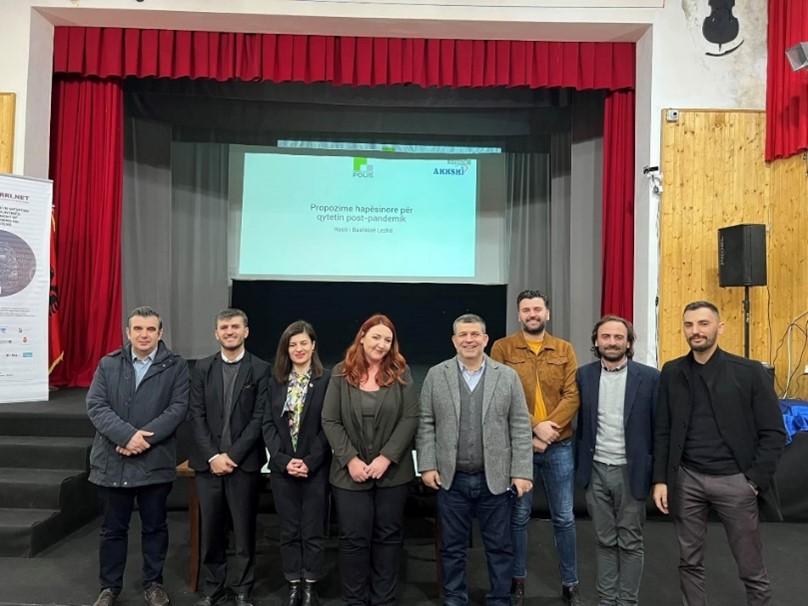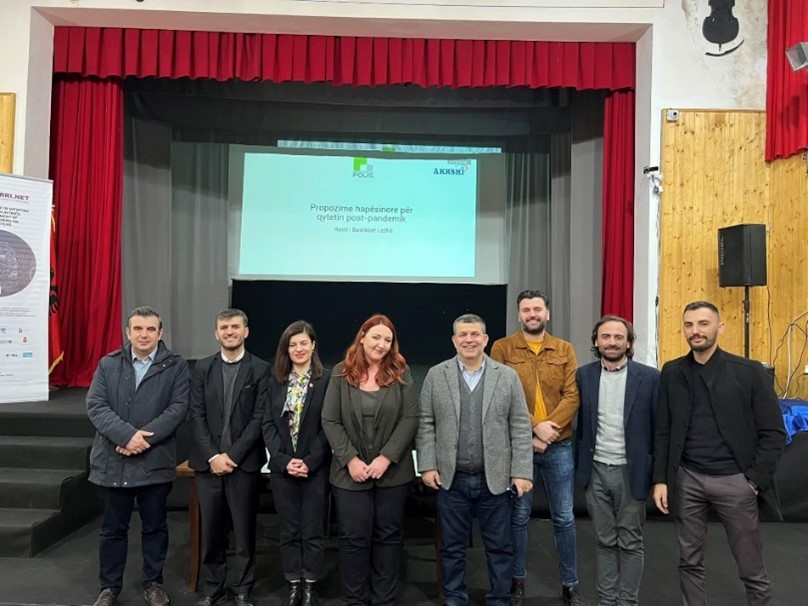RRI key focus: Public Engagement (Open Science) & Governance
WBC-RRI.NET territory anchor embraced by the Mayor of Lezhë in joint workshop with Polis University
Co-PLAN, together with the Albanian Ministry of Tourism and Environment, are well underway in implementing the citizen science initiative in the Kune-Vaini lagoon of Lezhë, which aims at mapping and assessing the ecosystem services through a participatory approach.
In February 2023, researchers from Co-PLAN were invited by the Mayor of Lezhë to present preliminary findings of this research to representatives from the municipality staff and the local community. The presentation was anchored to a workshop organized by Polis University, under support of NASRI (National Agency for Research and Innovation), titled ‘Spatial Solutions for the Post-Pandemic Climate-Neutral city, Lezha and Kune-Vaini lagoon’. Polis University shared the work that was done during an integrated PhD program, in terms of resilient community development; sustainable infrastructure; and socio-ecological cohesion. The Co-PLAN team presented some findings from the Total Economic Value survey, conducted with households within the lagoon, to co-assess the ecosystem values. Following, a discussion was fostered among participants about the future development scenarios of the coastal area/protected area of the municipality, and the ways into which the presented development scenarios can be implemented through horizontal collaboration and bottom-up participatory approaches, including more citizen science activities.
Both the Mayor of Lezhë, Mr. Pjerin Ndreu, as well as the rector of Polis University, Mr. Besnik Aliaj, emphasised the importance of the collaboration between academia and local governance in addressing the target of climate neutrality for the municipality by 2050.

Representatives from Co-PLAN and Polis University joining synergies in conducting research on the Municipality of Lezhë, February 2023
Open dialogue and mutual learning meeting “Embedding RRI into the Green Agenda in Western Balkans”
An extensive open dialogue and mutual learning initiative titled “Embedding RRI into the Green Agenda in Western Balkans” took place from 11-13 October in Tirana. The Co-PLAN Institute for Habitat Development and the Albanian Ministry of Tourism and Environment, in collaboration with the POLIS University, were the hosts for this significant event that promises to shape the future of the Western Balkans.
Following the anchor initiative in the Kune-Vain-Tale ecosystem, which attempts to adopt and implement new activities towards mitigation and adaptation to climate issues and resilience to environmental disasters, this event aimed to significantly help to face with the pressing environmental concerns. The Western Balkans have recognized the urgency of environmental sustainability and socio-economic innovation, and the Green Agenda in this area has become an encompassing framework. This initiative holds immense promise, not only in driving environmental conservation but also in nurturing green growth and resilience. The event “Embedding RRI into the Green Agenda in Western Balkans” brought together a diverse array of stakeholders, ranging from academia to non-academic actors, and partners from the WBC-RRI.NET network. Their collective focus was on addressing common challenges related to fostering innovation and responsible research, with the overarching goal of promoting sustainability and climate resilience in the region.
The event offered a platform for constructive discussions and collaborations that can shape the destiny of the Western Balkans and contribute to global efforts for a greener future.

